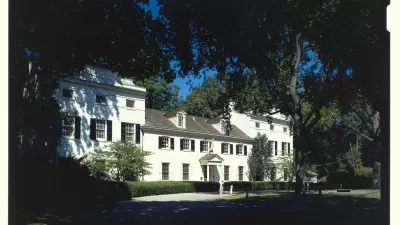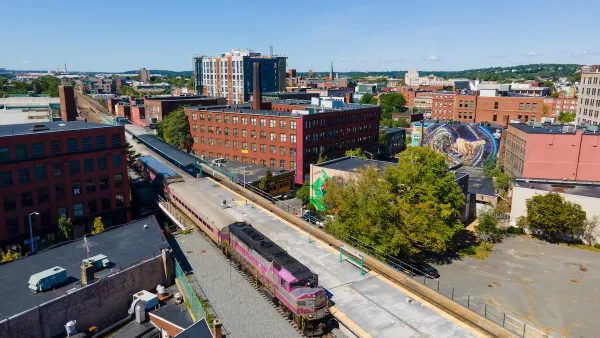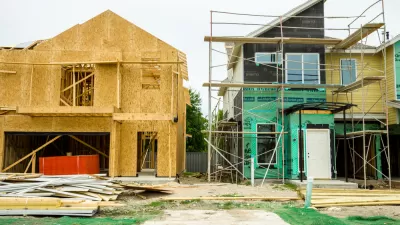A decades-old policy allowing hyperlocal zoning exemptions and restrictions creates a confusing patchwork of zoning regulations across the city.

A proposed overlay district in Philadelphia would ban roof decks and new construction taller than adjacent structures, prompting Jake Blumgart, writing in the Philadelphia Inquirer, to question the policy that allows City Council members to “create carve outs within the city’s overall zoning code to appease constituents, punish enemies, and implement hyperlocal priorities.”
Blumgart explains the history of zoning overlay districts, which operate within Philadelphia’s citywide zoning codes to “create a hyperlocal set of rules for a specific corner of the city, giving every City Council district its own idiosyncratic take on zoning rules.” The article describes several existing Philadelphia overlay districts, which in some cases exclude student housing or require extra steps for new business permits.
Critics say the complicated overlays discourage newcomers and entrepreneurs with lower access to capital. As Blumgart explains, “The rules are only navigable with a zoning attorney, and connections with local officials and neighborhood groups gives the advantage to monied, or politically connected, business owners.” However, overlay districts have also created opportunities for some council members to implement affordable housing requirements in their districts. “For politicians like the Council president, the overlays are a means to address fears of neighborhood change and fight back against aspects of the new zoning code he does not like.”
FULL STORY: What a ban on roof decks in a corner of North Philly says about the city’s zoning code

Planetizen Federal Action Tracker
A weekly monitor of how Trump’s orders and actions are impacting planners and planning in America.

Map: Where Senate Republicans Want to Sell Your Public Lands
For public land advocates, the Senate Republicans’ proposal to sell millions of acres of public land in the West is “the biggest fight of their careers.”

Restaurant Patios Were a Pandemic Win — Why Were They so Hard to Keep?
Social distancing requirements and changes in travel patterns prompted cities to pilot new uses for street and sidewalk space. Then it got complicated.

Platform Pilsner: Vancouver Transit Agency Releases... a Beer?
TransLink will receive a portion of every sale of the four-pack.

Toronto Weighs Cheaper Transit, Parking Hikes for Major Events
Special event rates would take effect during large festivals, sports games and concerts to ‘discourage driving, manage congestion and free up space for transit.”

Berlin to Consider Car-Free Zone Larger Than Manhattan
The area bound by the 22-mile Ringbahn would still allow 12 uses of a private automobile per year per person, and several other exemptions.
Urban Design for Planners 1: Software Tools
This six-course series explores essential urban design concepts using open source software and equips planners with the tools they need to participate fully in the urban design process.
Planning for Universal Design
Learn the tools for implementing Universal Design in planning regulations.
Heyer Gruel & Associates PA
JM Goldson LLC
Custer County Colorado
City of Camden Redevelopment Agency
City of Astoria
Transportation Research & Education Center (TREC) at Portland State University
Camden Redevelopment Agency
City of Claremont
Municipality of Princeton (NJ)





























